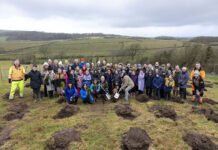
A new framework developed by the Royal Institution of Chartered Surveyors (RICS) has been tipped to improve building use and support more flexible work.
The organisation revealed it will provide an interactive framework, supported by an assessment tool, to measure and benchmark building performance, by collecting ‘consistent’ data to satisfy the needs of occupiers, investors, advisors and end users.
RICS added that International Building Operation Standard or IBOS will support organisations in attracting people back to the workplace, by delivering confidence that the building they’re in is supporting their wellness, and benchmarking success against driving down the commercial sector’s carbon footprint.
The standard has been described as the ‘first of its kind’ globally to deliver a consistent approach to help organisations assess and improve their building’s performance in such a broad way.
RICS said that many organisations already monitor their properties’ performance. However, according to respondents to the RICS Global Commercial Property Monitor, only 67% of respondents believe there are currently techniques and practices in place to measure the environmental impact, and those that are in place need further development.
The same survey shows 85% of respondents are seeing a rising demand for more flexible workspaces.
Paul Bagust, head of land and property standards, said, “The way buildings are used is changing. Environmental concerns have come to the fore; attitudes to health and wellbeing are evolving rapidly; expectations of the workplace are far more sophisticated.
“We must take a broader approach to decision making in the way we use property. IBOS will address how organisations work with their buildings by creating consistency on cost elements for workspace, people and technology to optimise the value for all concerned.”
The standard will be supported by a free self-assessment tool in the first half of 2022.








